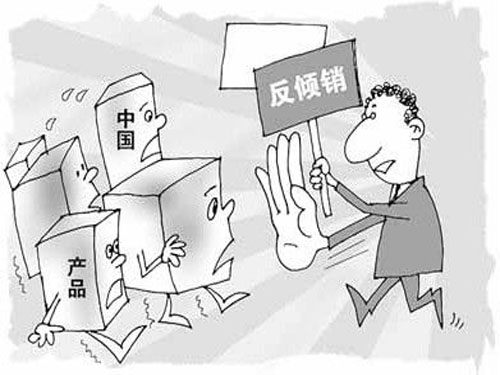 Indonesia proposes to impose an anti-dumping tariff of 87% on China's ceramic tableware products. This is the sixth anti-dumping case that has been encountered since last year. Industry sources call for special attention to the “demonstration effectâ€.
Indonesia proposes to impose an anti-dumping tariff of 87% on China's ceramic tableware products. This is the sixth anti-dumping case that has been encountered since last year. Industry sources call for special attention to the “demonstration effectâ€. Yangcheng Evening News reporter Ma Hanqing reported: After the Chinese ceramic industry suffered five major anti-dumping “cold streams†last year, this year’s New Year ushered in a new attack: the Ministry of Commerce revealed yesterday that the Indonesian Anti-Dumping Committee issued an anti-dumping investigation on China’s ceramic tableware products. Disclose before the final ruling, and propose to impose anti-dumping duties of 87% on the above products.
Be alert to the "demonstration effect"
It is understood that Indonesia is the world’s sixth largest ceramic producer, second only to China, Spain, Italy, Turkey and Brazil. There are many local ceramic manufacturers that produce ceramic tableware.
"Indonesia's measures will definitely affect China's ceramics industry." Lan Weibing, director of the China Ceramics Industry Association's Foshan office, told the Yangcheng Evening News reporter yesterday that the current global economic recovery is slow, and many Indonesian ceramic products are also targeted at the export market. Its exports were affected, and as China’s ceramics expanded its exposure to emerging markets, it also exerted pressure on the domestic market of Indonesian ceramics. Under such circumstances, it is not surprising that local protection of its domestic industries was based on anti-dumping measures.
The Blue Guards said that at present, ceramics and Other daily-use ceramics are produced in Hunan, Guangxi, Shandong and Chaozhou in Guangdong, and related measures in Indonesia will have a more pronounced impact on ceramic exports in this region. What needs to be particularly vigilant is that such anti-dumping measures will have a larger “demonstration effect†and may lead to anti-dumping measures against Chinese ceramic tableware in other regions.
Active responding is a top priority. In fact, China has for many years become the world’s country with the highest number of anti-dumping investigations. The ceramic industry can be regarded as a “hard-hit areaâ€. According to report, last year South Korea, Argentina, Peru, and Brazil successively launched anti-dumping investigations, sunset reviews, or direct tariff increases on China, while the European Union imposed punitive tariffs on Chinese ceramic companies, and it was valid for five years.
Under these "cold streams", Chinese ceramics had a greater impact on the market export of relevant regions. As shown in the data, last year, Foshan, a major ceramics manufacturer in China, experienced a 30% decline in its ceramic export trade due to anti-dumping. However, due to increased efforts in other market developments, especially in emerging markets such as South America and Africa, the total value of Foshan ceramics exports still increased by 15% last year.
Obviously, the Indonesian anti-dumping tax rate is very high. If many emerging markets follow, they will “fake†and will have an adverse impact on the development of China’s ceramic industry.
how to respond? The Blue Guards pointed out that relevant measures in Indonesia are still in the stage of “disclosed before the final ruling.†Therefore, actively responding to the legitimate rights and interests of maintaining Chinese ceramic tableware is still an urgent matter.
Flexible Hose,Faucet Hose,Bathroom Metal Hose,Braided Plumbing Hoses
kaiping aida sanitary ware technology co.,ltd , https://www.kpaidafaucets.com